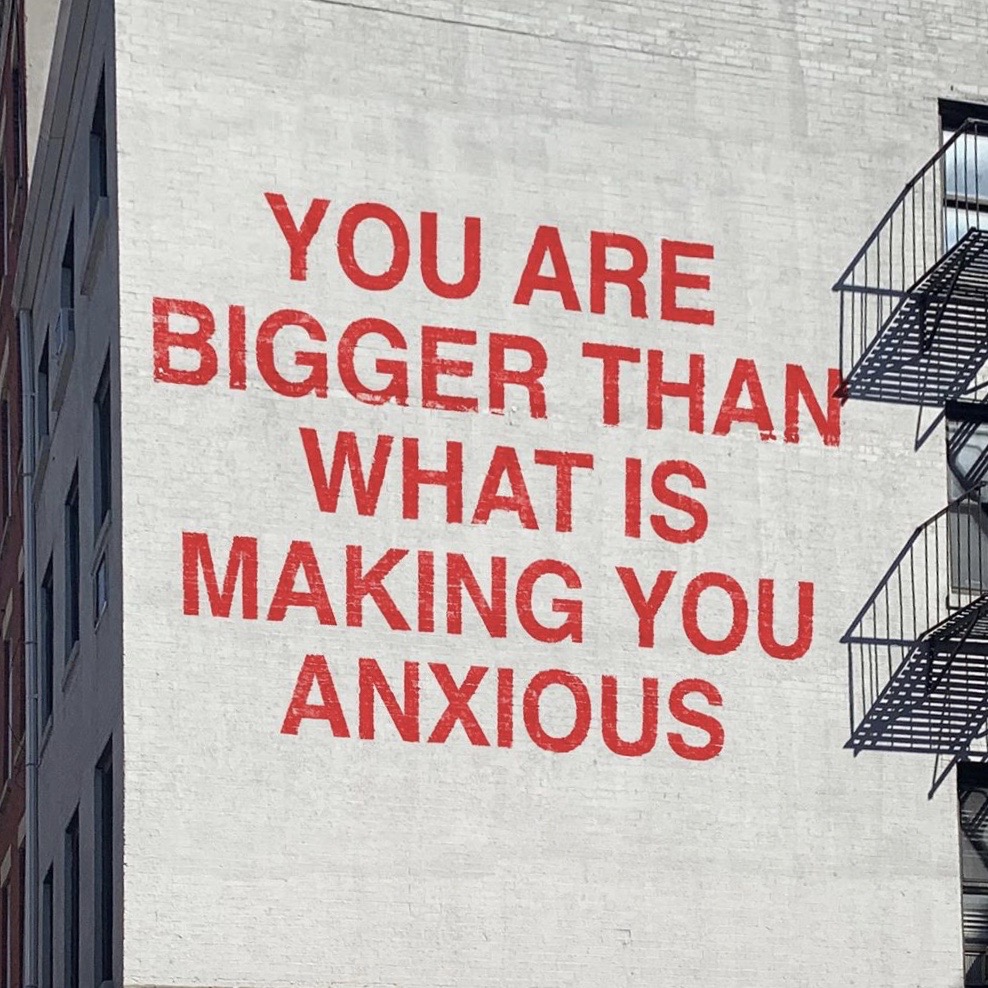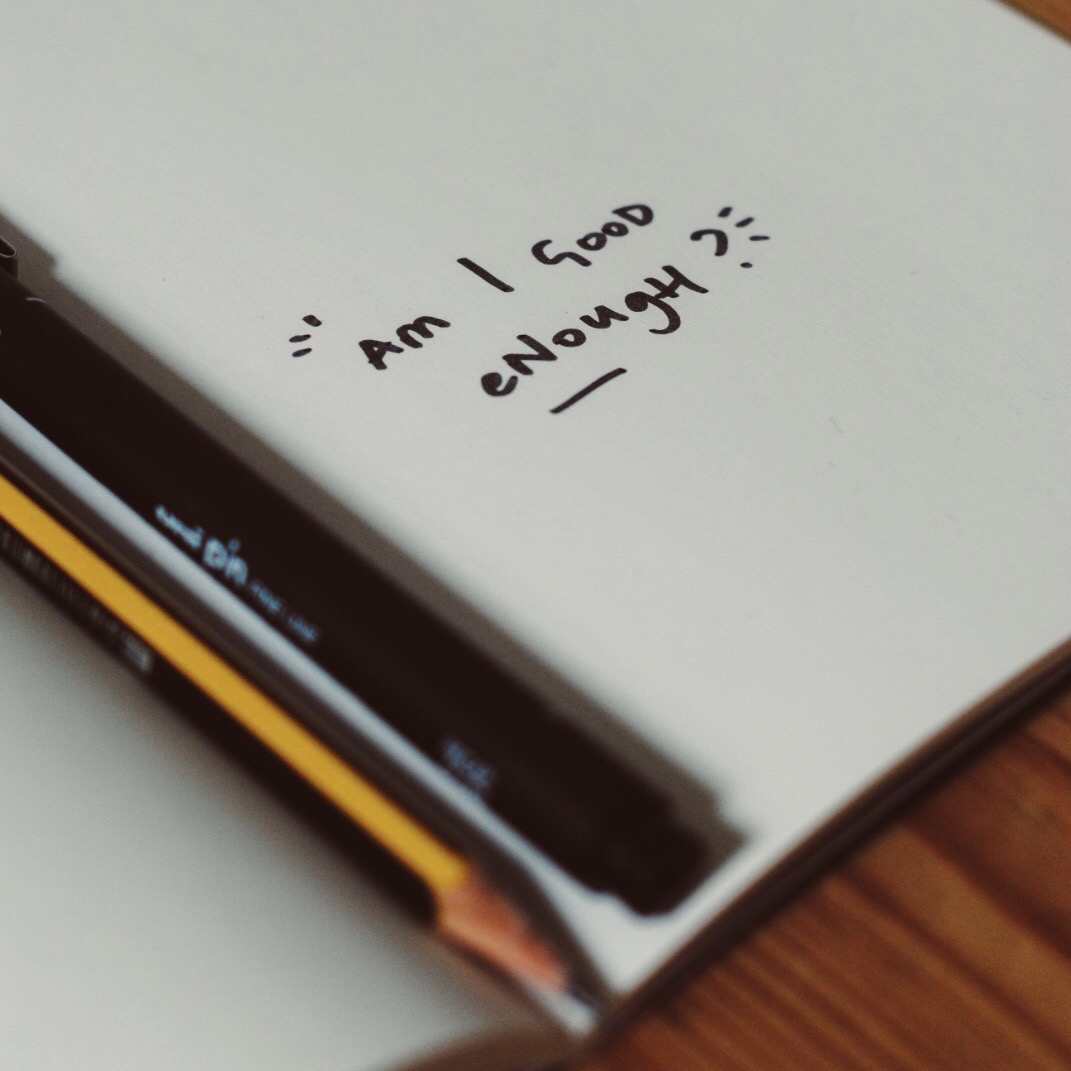
Sleep disruption is a common feature of mental health problems, and anxiety is no exception. 6% of England have a 'generalised anxiety disorder'. It's almost impossible to describe the feeling of fear washing over you without warning or reason. Nevermind, switch off and sleep.
Hundreds of thoughts buzzing around in your head. The more you try to get to sleep the more anxious you end up feeling. Just 6 hours to go until the alarm goes off… 5... now 4… panic
A good night’s sleep is vital for every human to survive. Add in anxiety. Plus your mind being constantly on... You need to sleep more than anyone. But how? We hear you.
The benefits of a good night's kip cannot be underestimated. Everyone has their own remedies, we've tried and tested the following, so prepare for a sleepy time...


The power of positivity
It's hard to think of anything else when you’re really upset or frazzled.
We’ve all been there. Thinking negatively and ending up trapped in a vicious cycle. Impossible to break, no matter how hard you try. Taking control of your thoughts and working hard to think positively, will help you feel calmer and ready for sleep. Easier said than done, right? You have the power, you just need to put in a little work...
-
Write down something you’ve done today which you’re proud of. Something you’ve found funny. Something that inspired you.
-
Accept that today is done. Tomorrow hasn't started. Create a list for tomorrow - this should help take the thoughts out of your head.
-
Avoid negative or heavy conversations near bedtime. It's hard to shake emotions, so these will keep you feeling awake.
Exercise can actually help reduce stress and anxiety
We know… how many times have you heard this? It is a well-known fact that regular exercise is good for your body and mind.
If you work in an office or find yourself sat down at a desk most of the day chances are, you won’t be getting much physical exercise.
Exercise is a brilliant way to reduce stress, boost your mood and release unwanted negative feelings. Also, as a last resort… physically tire you out, enabling you to sleep better.
From working to socialising and squeezing in downtime, it can be hard to fit it in. It's worth it though. Don't overwhelm yourself or over commit. Ease your way into it… walking can soothe the mind. Get into a routine of going for one when you first get up or after dinner. Try setting a lunchtime reminder to step out, even if it's just for a bit. Refrain from exercising just before sleeping though, as it can keep you awake. You'll become 'wired but tired'.


Journaling
It's the end of a busy day. Your mind is running at a million mph. You just can’t seem to chill. You can't drift off.
Venting is awesome for a reason. It helps you release your frustrations. Transferring these thoughts onto paper will help lift the weight off your shoulders in turn, facilitating welcome sleep.
Sometimes, the worries in your head seem much bigger than they actually are. Try writing them down without attaching an emotion to them. Look at them logically, and prioritise your fears, problems, and concerns.
A journal can also be a helpful exercise if you want to keep track of mood or behaviour changes over time.
Ensure you only spend a set amount of time on this. You don’t want to be up all night thinking about it. A ‘worry time’ of 30 minutes should be more than enough. Keep your journal nearby and turn to it in moments of need. It's a judgment-free zone.
Get serious with your self-care
Self-care isn’t just hot baths and candles. Although they’re fantastic. It’s eating and drinking well. Taking care of the fundamentals and making time to do things just for you. A time out. Make sure you take care of the basics. Eat well, drink enough water and get outside.
Sometimes it can be hard to remember, but giving your body everything it needs to function well, will give you the best chance of feeling better tomorrow.


Bedtime routines
When we first come into the world, the importance of sleep is taken seriously. What happened? yawn
We need sleep to grow, repair, form memories and make sense of everything that’s happened around us that day. As a youngster, we had a bedtime routine, why don't we continue with this as adults? A relaxing bedtime routine can help us get the mini-vacation we need...
Try making the below into habits to help you get some shut-eye.
- Limit stimulants. Cut out caffeine 4 hours before you plan to go to bed. Why not try swapping your evening tea or coffee for a Chamomile Tea? This tea is very calming and soothing with no caffeine. A bit of an old wives' tale. Give warm milk or almond milk a go. The presence of serotonin in the brain can help initiate sleep. Heard of tryptophan? It's naturally found in both cow's milk and almond milk. An amino acid, that once consumed, converts into melatonin which helps to regulate our natural sleep state.
Another option is malted milk, Horlicks anyone? It contains magnesium which helps you relax before bedtime and improve sleep quality. No wonder babies go into a milk coma and sleep soundly after warm milk!
-
Make your bedroom a sleep-only zone. When you're busy and stressed at work, it can be tempting to let the laptop sneak into your bedroom. Checking emails or doing work right before bed can trigger anxious thoughts. Don't take the laptop to bed. Stay strong, be strict. Let your brain recognise the bedroom is a place to sleep. It may seem obvious, but the darker, quieter, and cooler you can keep your bedroom, the easier it will be to drift off to the land of nod.
-
Avoid those screens for an hour before bed. We know, an hour sounds crazy. Get lost in a book. Listen to a playlist or podcast, but make sure your screen is turned to its lowest setting while you're snuggled in bed listening to it. Try our Sleepy Playlist if you need somewhere to start. Do you have a go-to sleepy song?
-
Calm your mind. Try a bath shortly before bed, add in relaxing oils such as lavender. You may know this already but; mindfulness meditation, yoga, and breathing exercises can help you achieve calm.
Managing anxious worry and improving sleep is more complicated than simply turning off your phone or getting adequate exercise.
Imagine a button, for instant sleep. We wish... We hope these tips help with your shut-eye woes.
